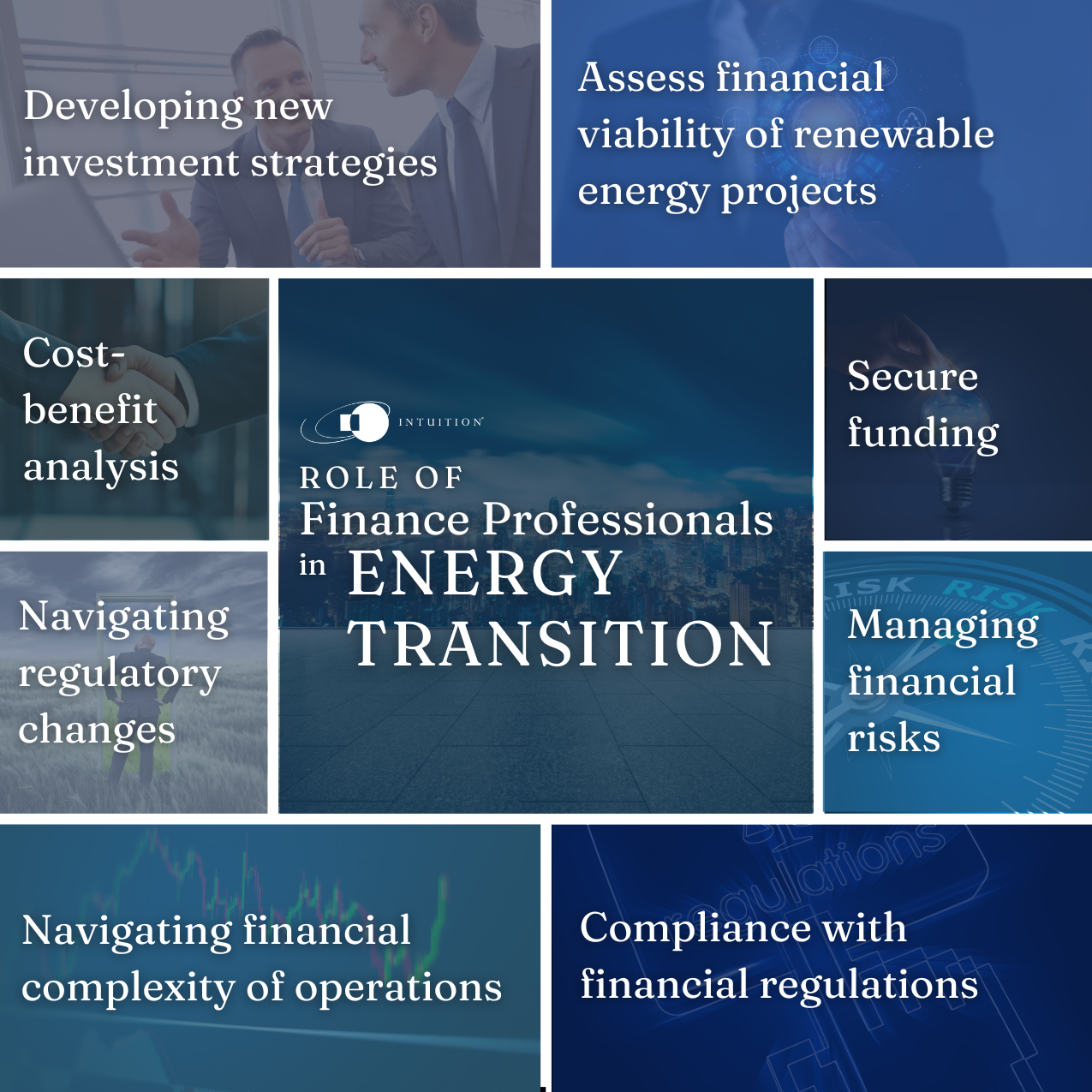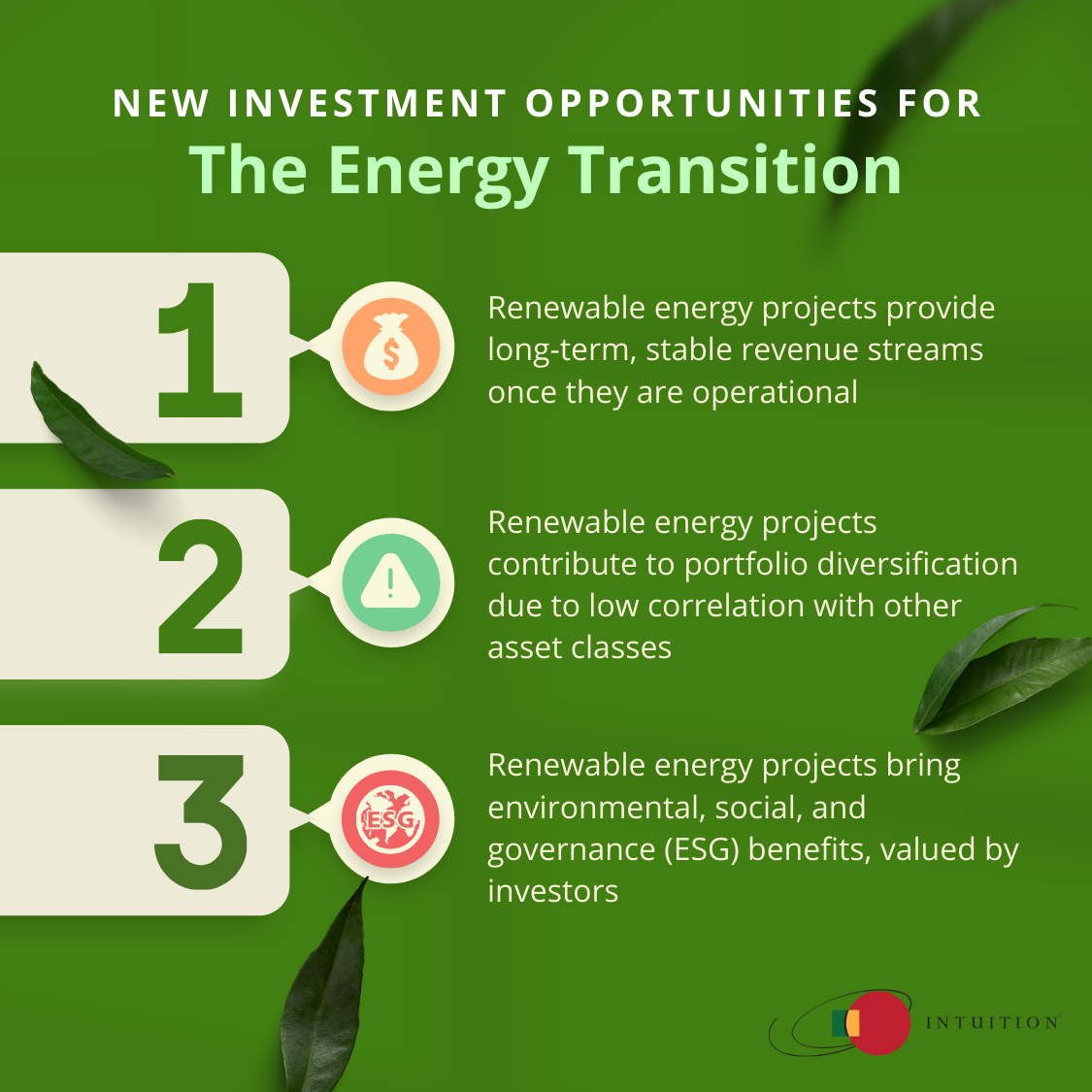The impact of the energy transition on finance professionals
The energy transition presents several challenges for finance professionals. These include the need to understand the financial implications of the transition, the demand for new investment strategies, and the requirement for a thorough understanding of regulatory changes related to the energy transition. This seismic shift from fossil fuels to renewable energy sources is not only a challenge but also an opportunity for finance professionals to broaden their horizons and step into a new frontier of energy financing.
For decades, we have relied heavily on fossil fuels – oil, coal, and natural gas – as our primary sources of energy. However, these resources are finite, and their production and consumption have significant environmental impacts, contributing to global climate change. The transition to more sustainable, renewable sources of energy is therefore not merely a choice, but a necessity.
This energy transition is not only about changing our energy sources. It is about transforming our energy systems, our economies, and our societies. The transition affects all sectors and industries, and finance professionals play a crucial role.
Understanding the role of finance professionals in energy transition
Finance professionals are central to the energy transition. Their role in this transformation is multifaceted and complex, encompassing risk management, investment, and strategic planning, among other duties.
Finance professionals, are tasked with assessing the financial viability of renewable energy projects, securing funding, managing financial risks, and ensuring compliance with financial regulations. They are also responsible for developing new investment strategies to drive the energy transition and for understanding and navigating the regulatory changes that come with it.
Moreover, they play a critical role in managing the financial implications of the transition. This includes understanding the potential costs and benefits of shifting to renewable energy, managing the financial risks associated with the transition, and helping companies navigate the financial complexities of transitioning their operations to more sustainable energy sources.

Challenges faced by finance professionals
The energy transition presents several challenges for finance professionals. One of the most significant is the need to understand and navigate the financial implications of the shift to renewable energy. This includes assessing the financial viability of renewable energy projects, managing the financial risks associated with the transition, and ensuring that companies are financially prepared for the transition.
Another challenge is the demand for new investment strategies. Traditional investment strategies may not be suitable for the energy transition, and finance professionals must develop new strategies that take into account the unique features of renewable energy projects, such as their long-term nature and the variability of their output.
Finally, the energy transition is accompanied by a host of regulatory changes. These changes can have significant financial implications, and finance professionals must have a thorough understanding of these regulations and their impacts to manage the financial aspects of the transition effectively.
Energy transition: How finance professionals can overcome challenges
New investment strategies for energy transition
Finance professionals have to devise new investment strategies to cater to the needs of the energy transition. Traditional investment strategies primarily focus on short-term returns and predictable revenue streams. However, renewable energy projects often require significant upfront investment, have longer payback periods, and their revenue streams can be less predictable due to factors such as weather variability.
Despite these challenges, renewable energy projects also offer unique investment opportunities. They can provide long-term, stable revenue streams once they are operational, and they can also contribute to portfolio diversification due to their low correlation with other asset classes. Moreover, investing in renewable energy projects can also bring environmental, social, and governance (ESG) benefits, which are increasingly valued by investors.
To seize these opportunities, we need to develop new investment strategies that take into account the unique features of renewable energy projects. These strategies should focus on long-term returns, account for the risks associated with renewable energy projects, and incorporate ESG factors.

Financial implications of the energy transition
The energy transition has profound financial implications. On the one hand, it requires significant investment. The International Renewable Energy Agency estimates that $35 trillion is required by 2030 to achieve the global energy transition. This presents a significant financial challenge, but also a significant investment opportunity.
On the other hand, the energy transition can also bring financial benefits. Renewable energy projects can provide long-term, stable revenue streams once they are operational. Moreover, companies that transition to renewable energy can benefit from reduced energy costs, increased energy security, and improved sustainability credentials, which can enhance their reputation and competitiveness.
However, the energy transition can also pose financial risks. These include the risk of stranded assets – fossil fuel assets that become unviable due to regulatory changes or market shifts – and the financial risks associated with renewable energy projects, such as price volatility and technological risks.
Regulatory changes and their impacts on finance professionals
The energy transition is accompanied by a raft of regulatory changes. These changes can have significant financial implications, and finance professionals must have a thorough understanding of these regulations and their impacts to manage the financial aspects of the transition effectively.
Regulatory changes related to the energy transition encompass a wide range of areas, including renewable energy targets, carbon pricing, energy efficiency standards, and disclosure requirements for climate-related financial risks. These regulations can affect the financial viability of renewable energy projects and the financial risks associated with the energy transition.
Finance professionals need to stay abreast of these regulatory changes and understand their financial implications. This requires continuous learning and a proactive approach to regulatory compliance.
How finance professionals are tackling the energy transition
There are numerous examples of how finance professionals are successfully navigating the energy transition. These case studies provide valuable insights into the strategies and practices that finance professionals are employing to manage the financial aspects of the transition.
One notable example is the Danish energy company Ørsted, which successfully transitioned from a fossil fuel-based business model to a renewable energy business model. The company’s finance team played a crucial role in this transition, managing the financial risks associated with the transition, securing funding for renewable energy projects, and ensuring regulatory compliance.
Another example is the multinational bank ING, which has developed a comprehensive strategy to manage the financial risks associated with climate change and the energy transition. The bank’s finance team has integrated climate-related financial risks into its risk management framework and has developed new financial products to drive the energy transition, such as green bonds and sustainable loans.

The evolving role of finance professionals in the energy transition
The role of finance professionals in the energy transition is set to evolve further in the coming years. As the transition accelerates, finance professionals will be required to manage increasingly complex financial challenges and opportunities.
Members of the finance industry will need to develop even more sophisticated investment strategies to drive the energy transition, manage complex financial risks associated with the transition, and navigate a rapidly changing regulatory landscape. They will also need to integrate sustainability considerations into all aspects of their work, from risk management to investment decision-making.
Moreover, they will need to play a leading role in driving the energy transition. As finance professionals have the power to mobilize the financial resources needed to achieve the transition, and to shape the financial practices and norms that will underpin the transition.
Conclusion: Adapting to the new frontier of energy transition
The energy transition presents both challenges and opportunities for finance professionals. While the transition requires us to navigate complex financial and regulatory landscapes, it also provides us with unique investment opportunities and the chance to play a leading role in driving a sustainable future.
To thrive in this new frontier, finance professionals need to learn and adapt continuously. They need to develop new investment strategies, understand the financial implications of the transition, and stay abreast of regulatory changes. They also need to integrate sustainability into all aspects of their work and seize the unique opportunities presented by the energy transition.
The energy transition is not only a challenge but also an opportunity for finance professionals to broaden their horizons and step into a new frontier of energy financing.


